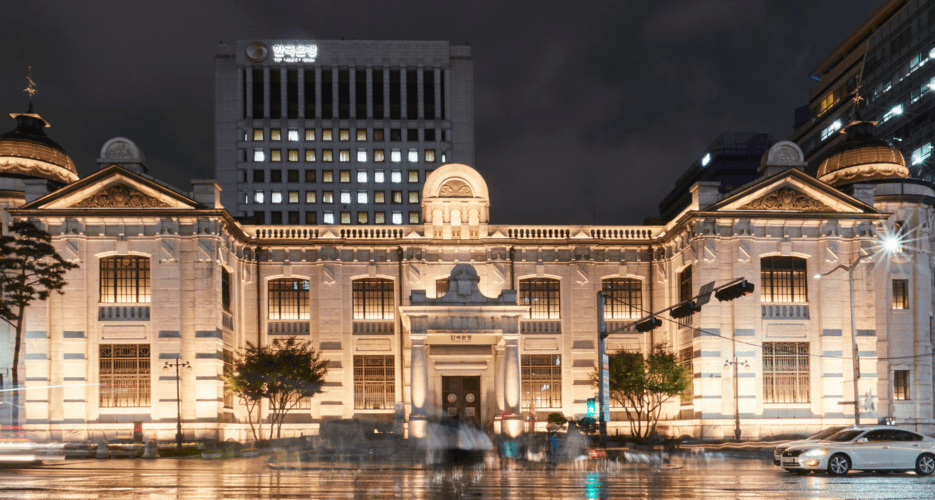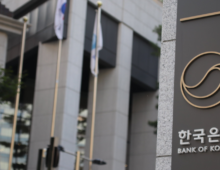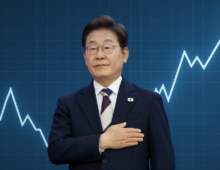The Bank of Korea signals its aim to balance growth and inflation by keeping interest rates steady
The Bank of Korea (BOK) has maintained its key interest rate at 3.5% for the seventh consecutive time amid concerns over global economic slowdown and ongoing geopolitical risks. This decision follows a series of rate freezes since February and succeeds seven consecutive hikes from April 2022 to Jan. 2023. While maintaining the current year’s growth estimate at 1.4%, the BOK lowered its 2024 growth projection to 2.1% from 2.2% and increased the inflation forecast for the next year to 2.6% from 2.4%.
The South Korean economy faces challenges from declining exports and weak consumer spending. Despite a recent rebound in exports, led by robust auto-shipments and improvements in the chip sector, the economy’s growth remains uncertain. BOK Governor Rhee Chang-yong highlighted that the 2024 growth outlook of 2.1% is competitive globally, with the current interest rate levels deemed sufficiently restrictive. Household debt continues to rise, contributing to concerns over weakening domestic demand as the central bank closely monitors the interest rate gap with the U.S., which could influence capital flows and inflation.
The Bank of Korea (BOK) has maintained its key interest rate at 3.5% for the seventh consecutive time amid concerns over global economic slowdown and ongoing geopolitical risks. This decision follows a series of rate freezes since February and succeeds seven consecutive hikes from April 2022 to Jan. 2023. While maintaining the current year’s growth estimate at 1.4%, the BOK lowered its 2024 growth projection to 2.1% from 2.2% and increased the inflation forecast for the next year to 2.6% from 2.4%.
The South Korean economy faces challenges from declining exports and weak consumer spending. Despite a recent rebound in exports, led by robust auto-shipments and improvements in the chip sector, the economy’s growth remains uncertain. BOK Governor Rhee Chang-yong highlighted that the 2024 growth outlook of 2.1% is competitive globally, with the current interest rate levels deemed sufficiently restrictive. Household debt continues to rise, contributing to concerns over weakening domestic demand as the central bank closely monitors the interest rate gap with the U.S., which could influence capital flows and inflation.
Get your
KoreaPro
subscription today!
Unlock article access by becoming a KOREA PRO member today!
Unlock your access
to all our features.
Standard Annual plan includes:
-
Receive full archive access, full suite of newsletter products
-
Month in Review via email and the KOREA PRO website
-
Exclusive invites and priority access to member events
-
One year of access to NK News and NK News podcast
There are three plans available:
Lite, Standard and
Premium.
Explore which would be
the best one for you.
Explore membership options
© Korea Risk Group. All rights reserved.
No part of this content may be reproduced, distributed, or used for
commercial purposes without prior written permission from Korea Risk
Group.












